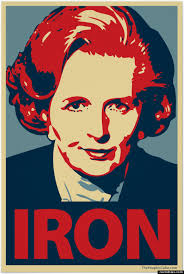
 V for vendetta has depicted our society
V for vendetta has depicted our society
The graphic novel by Alan Moore, V for Vendetta is set in Britain, when
liberal democracy has given way to a fascist totalitarian society led by Adam
Sutler of the ‘Norsefire’ regime.
The Norsefire is reflection of the Nazi regime,
oppressing people and forcing them to do what they wanted; torturing and
killing people they considered unfit or undesirable. V is the only person who
dares take them on, to say that they're wrong, and to free an entire populace
that has been enslaved. We must remember that the Nazis' radicalized
persecution thousands of homosexuals were sent to forced labor camps. There, in
an explicit campaign of "extermination through work," homosexuals and
other so-called security suspects were assigned to grueling work in ceaselessly
dangerous conditions. There was also a persecutiuons
against the Catholic Church in Germany
and Jewish people. In V for vendetta
we see that the story is not so different from what the Nazi regim and other
totalitarian systems were. What‘s more in V for vendetta, there was also a
persecution against, homosexuals, beatniks (bohemians), and people against the political
system.
V for Vendetta is a reaction against the Thatcherism. As you
all know in 1980s was the era of Margaret Thatcher's Government, which brought
large-scale social changes. One of them, was a policy enacted on 24 May 1988.
The amendment stated that a local authority "shall not intentionally
promote homosexuality or publish material with the intention of promoting
homosexuality" or "promote the teaching in any maintained school of
the acceptability of homosexuality as a pretended family relationship". As
a result, a number of lesbian, gay and bisexual student support groups in
schools and colleges across Britain were closed owing to fears by council legal
staff.
In V for
Vendetta we also see that the regime controls information. Actually, in the
first chapter when V detonates the bomb, the radio announces that the explosion
was previously arranged in order to demolish old buildings. Similarly, during
the Nazi regime newspapers and other media were controlled by the state. The
Reich Press Chamber bought and shut newspapers and publishing houses. By 1939
over two-thirds of the newspapers and magazines were directly owned by the
Propaganda Ministry.
As well as in the Nazi regime, in V for Vendetta we are told that music,
and great works of art are forbidden. If we look back in history, we will find
the Nazi book burning. the campaign conducted by the German Student Union to
ceremonially burned books in Nazi Germany and Austria by classical liberal,
anarchist, socialist, pacifist, Communist, Jewish, and other authors whose
writings were viewed as subversive or whose ideologies undermined the National
Socialist administration.
Later in the novel we are told the history of
what atrocities occurred at Larkhill Detention Centre. This is where we learned
more about V’s history and character. We get to know how V was tortured for
several years, and how all the prisoners at the centre were abused and treated
like less than human beings. What’s more, experimentations on humans were
carried out. In history we can finds ‘’the experiments by Mengele’’, and similar
cruel Japanese experiments in Manchuria in the 1930s and 40s.
And finally, just like in Larkhill detention centre,
prisoners were tortured just for being different, or for not fitting the standards
of the regime, similar concentratrion camps existed in Germany, Arbeitsdorf, Bergen-Belsen,
are few examples. More interestingly, Tejas verdes, Estadio Nacional, Campamento
Ritoque are one of the examples of the Chilean experience.
references
Moore, Alan, and David Lloyd. "Vfor vendetta." (1989).
Warburg, Gustav Otto. Six years of Hitler: the Jews under the nazi regime. G. Allen & Unwin, Limited, 1939.
|
One of the things that struck me the most is the fact that sadly history seems to be recursive, it seems like humankind does not learn from past events that marked a whole period of history. Of course, there are nuances between them due to the different protagonists and social issues of those present moments. Even though the events you have mentioned happened before the writing of V for Vendetta, these have served as a historic timeline from which Moore has influenced his dystopian graphic novel that depicts the society a decade forward from his present time as well as how some aspects of this vision are still present in our 2014 societ, such as media in the sense that news report are politically and economically sided. I really hope someday this pattern of events ends and as a society we could progress. Hopefully we would not be the influence of another dystopian novel.
ResponderEliminarAs Carolina mentioned before, I believe that the fact of repeting over and and over again the same mistakes of history is somenthing deeply sad. Human beings do not learn from their own mistakes and continuing doing the same attrocities instead of fixing and doing things in a better way. This situation has been depicted in severa books, such as 1984 that shows us how the power is always controlling us and V for vendetta represents a hero that fight against power abuse of his society.
ResponderEliminar